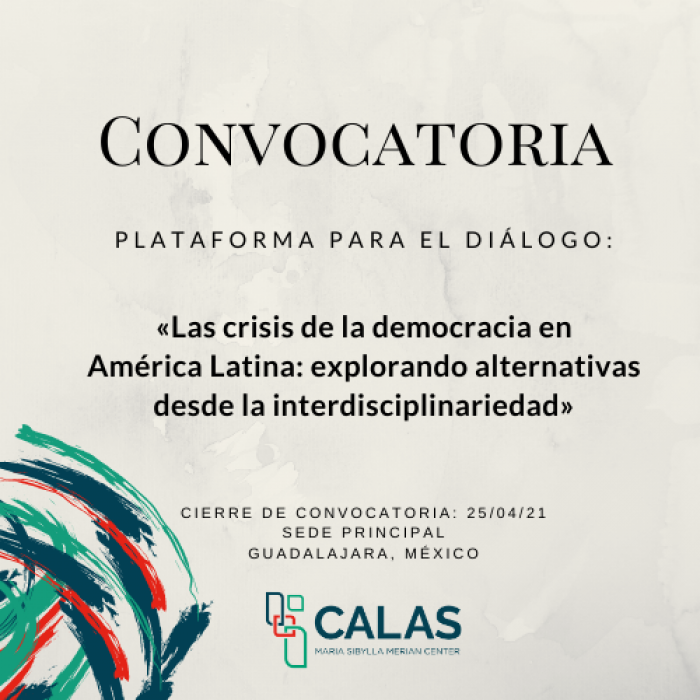La democracia como régimen político experimenta un momento de crisis global. El diagnóstico generalizado apunta a un fracaso institucional en la organización de la vida en común en nuestras sociedades contemporáneas, caracterizadas por demandas crecientes de bienestar económico, reconocimiento e inclusión, justicia y seguridad. La región latinoamericana, no obstante las diferencias de sus países, congrega un común denominador: el cuestionamiento a los regímenes democrático-liberales y la quiebra moral del sistema económico imperante en cada caso. El desencanto democrático en la región involucra graves déficits de legitimidad gubernamental, de bienestar y justicia distributiva y de representatividad político-democrática. El reclamo ciudadano frente a la insuficiente o mala representación, la creciente polarización social y política, el fenómeno populista en sus diferentes manifestaciones (liderazgos, movimientos, gobiernos) no son expresiones de pathos democrático, sino expresión de las profundas transformaciones que experimenta el ideal y la práctica democrática. Su análisis y comprensión debe cuestionar de manera crítica el pensamiento dicotómico (de lo democrático y antidemocrático) fundado en modelos universalistas de la democracia, así como narrativas deshistorizadas del momento actual para restituir el carácter experimental de la democracia.
Si bien el debate académico actual ha producido una amplia y sofisticada literatura, consideramos que las crisis de las democracias es un problema no sólo teórico, sino práctico, no simplemente académico o de perspectivas epistemológicas, ni siquiera tan sólo normativo o de estrategia política. Es un problema práctico al que todos los días se enfrentan los gobernantes, los líderes políticos, los activistas, los movimientos sociales, y los ciudadanos en general. Comprenderlo desde su complejidad es una tarea urgente para pensar las alternativas que surgen de las diversas tensiones y desafíos inherentes a la democracia. Lo que vemos en Chile, en Argentina, en México, en Brasil, en Venezuela, en Estados Unidos… demuestra la necesidad de reconsiderar el funcionamiento de las democracias—sus presupuestos conceptuales y normativos, sus consecuencias y desenlaces—para que nuestras sociedades sean capaces de hacer frente a las necesidades cotidianas de gestión política, negociación de intereses, e, inclusive, estabilidad, gobernabilidad y legitimidad. Naturalmente, se trata de problemas que involucran e interpelan a paradigmas de pensamiento y análisis, y que se intersectan con nuestras tradiciones de conversación y discusión pública, nuestras culturas políticas, y nuestros imaginarios de utopías y aspiraciones de transformación y progreso social. En este sentido, los problemas de nuestras democracias nos obligan a detenernos a dialogar, analizar, examinar y pensar en conjunto, sobre todo a quienes nos dedicamos a la vida académica.
Esta plataforma para el diálogo es una invitación a profundizar en la comprensión de la naturaleza de los déficits democráticos en la región, revisar las categorías analíticas con las que operamos, y pensar de manera colectiva las alternativas existentes y deseables al estado actual de las democracias. Nos interesa discutir cómo debemos analizar el estado actual de las democracias y realizar la crítica necesaria para redemocratizar las sociedades contemporáneas. El propósito es generar un diálogo interdisciplinario, interregional e intergeneracional que contribuya a la configuración de narrativas más críticas de las condiciones actuales desde diferentes disciplinas, perspectivas y preocupaciones. La plataforma se propine como espacio para una conversación desprejuiciada, abierta, rigurosa, respetuosa y creativa, para considerar bajo nuevas ópticas los problemas de nuestras democracias y caminos para gestionarlos.
Bajo estas consideraciones la Plataforma convoca a las y los intelectuales e investigadoras/es a reflexionar y participar de este encuentro internacional en torno a uno o varios de los siguientes ejes:
- Déficits y/o dinámicas centrales de la “crisis” democrática en las sociedades de la región. (déficits de representación, de bienestar,etc)
- Perspectivas internacionales de los déficits y/o dinámicas centrales de la “crisis” democrática
- Narrativas: Marcos interpretativos y análiticos desde la transdisciplinariedad
- Alternativas: pensamiento y teorización política, instituciones y experiencias de revitalización democrática
Bases de la convocatoria:
➢ La convocatoria está dirigida a investigadores, trabajando desde diversas disciplinas y tradiciones de pensamiento social y político que puedan aportar sólidas reflexiones teóricas y empíricas sobre uno de los cuatro ejes mencionados en la convocatoria.
➢ Aplicación: Llenar el formato de aplicación con título y resumen (300-400) palabras) de la propuesta y una breve ficha académica con indicación de la trayectoria profesional y publicaciones relevantes.
➢ Idioma: español o inglés
➢ Fecha límite para enviar las propuestas: 9 de mayo, 2021
➢ Enviar a: eventos@calas.lat, referencia "plataforma democracia"
➢ Un comité académico seleccionará los trabajos bajo criterios de excelencia. Las/los postulantes serán notificados antes del 15 de junio, 2021 sobre el dictamen de sus trabajos.
➢ El simposio está concebido en modalidad presencial. Sin embargo, si las condiciones sanitarias no permiten viajar en estas fechas, se realizaré en formato digital o híbrido.
➢ El CALAS se hará cargo de los gastos de hospedaje de los participantes. Además, habrá recursos limitados para asumir costos de viaje a Guadalajara, México.
Mayores informes:
Centro Maria Sibylla Merian de Estudios Latinoamericanos Avanzadas
Universidad de Guadalajara | CUCSH Campus Belenes | Parres Arias #150 | C.P. 45132 | Zapopan, Jal., México.
C.E.: info@calas.lat
Tlf: + 52 (33) 3819 3300-23594


